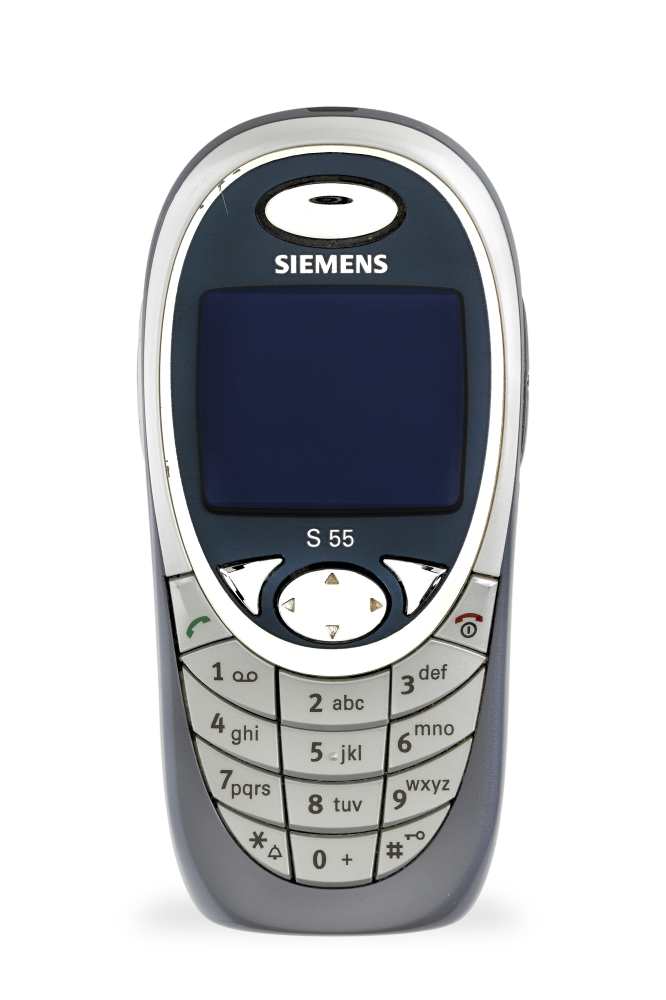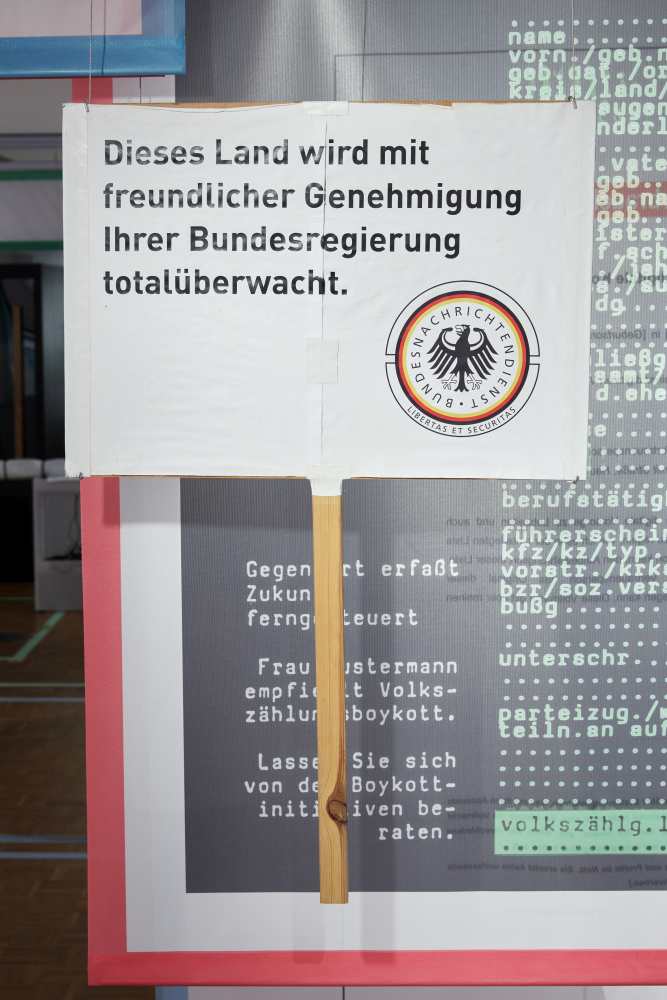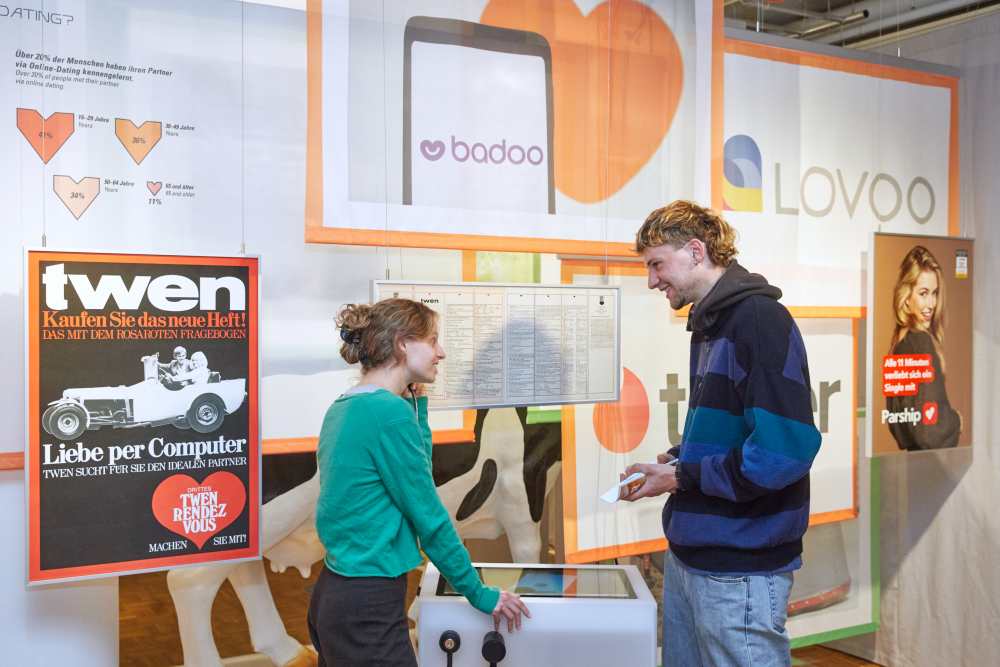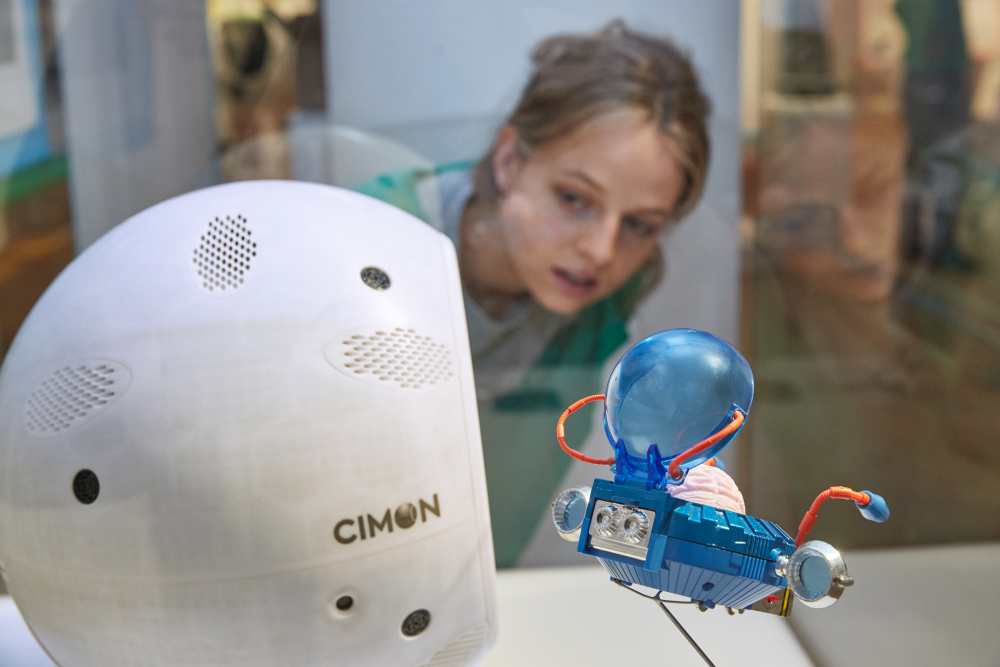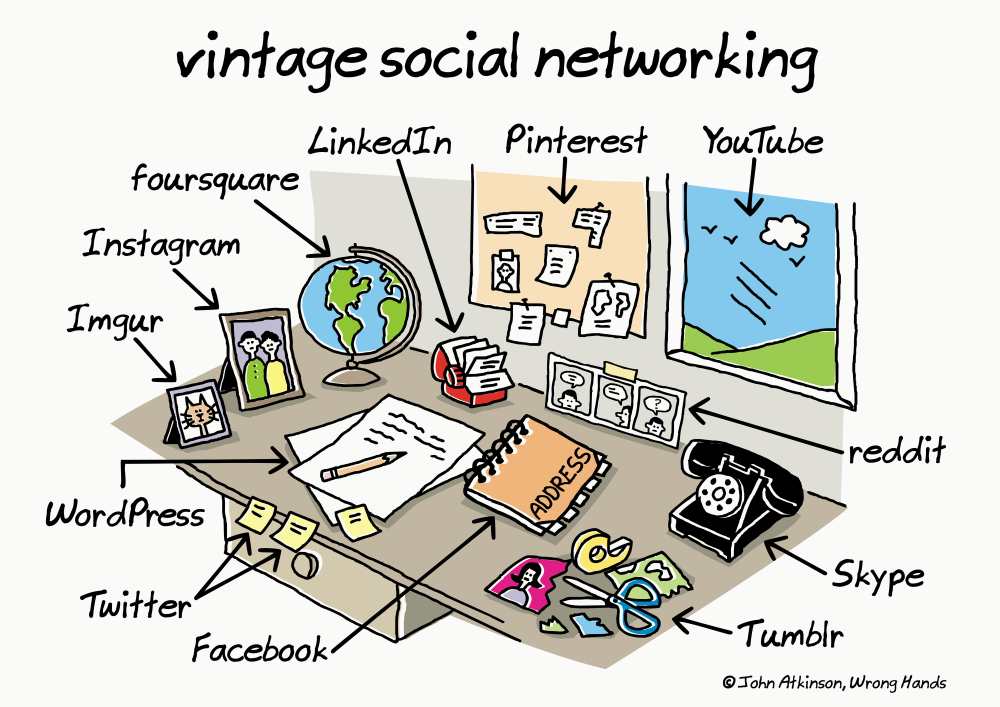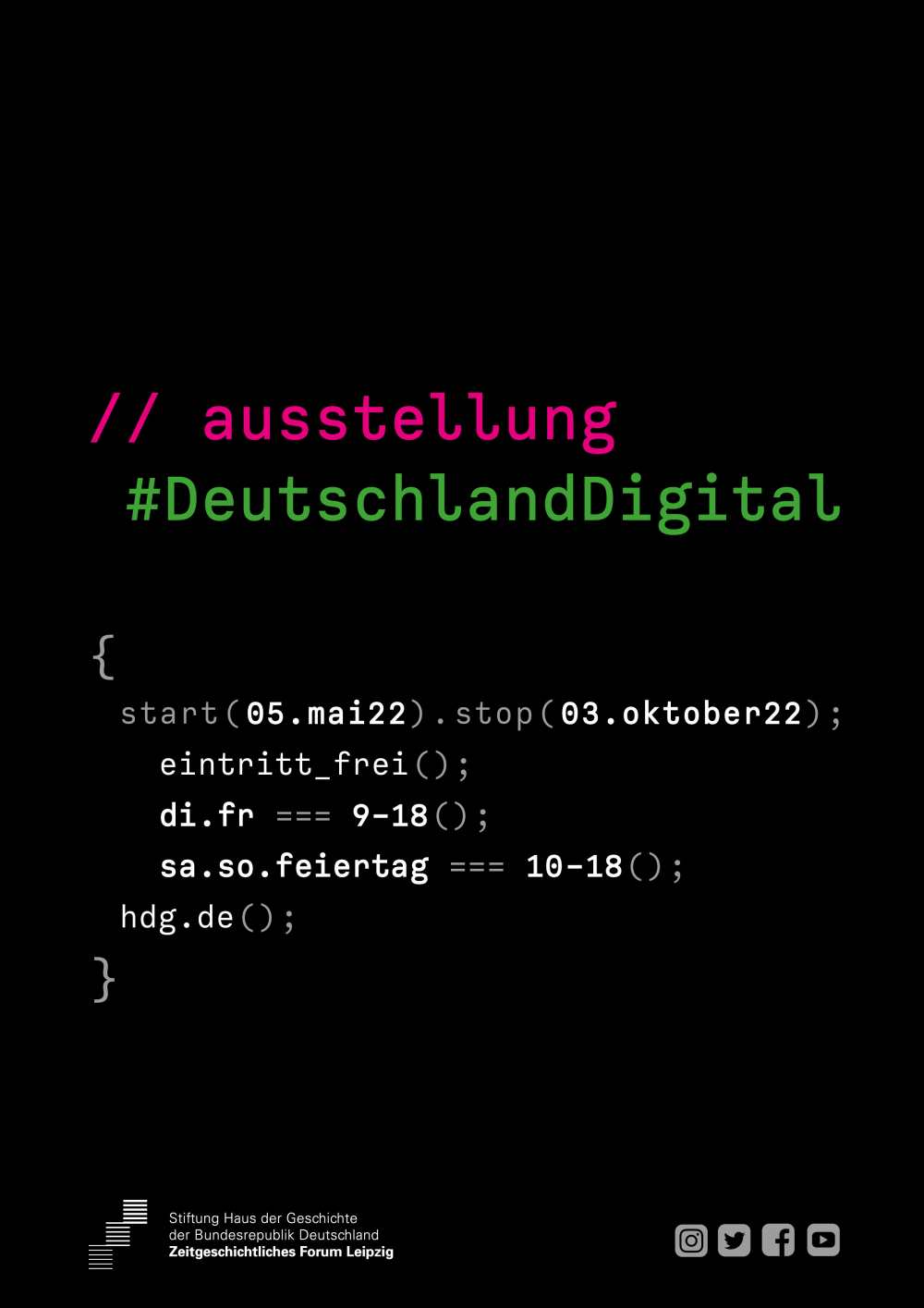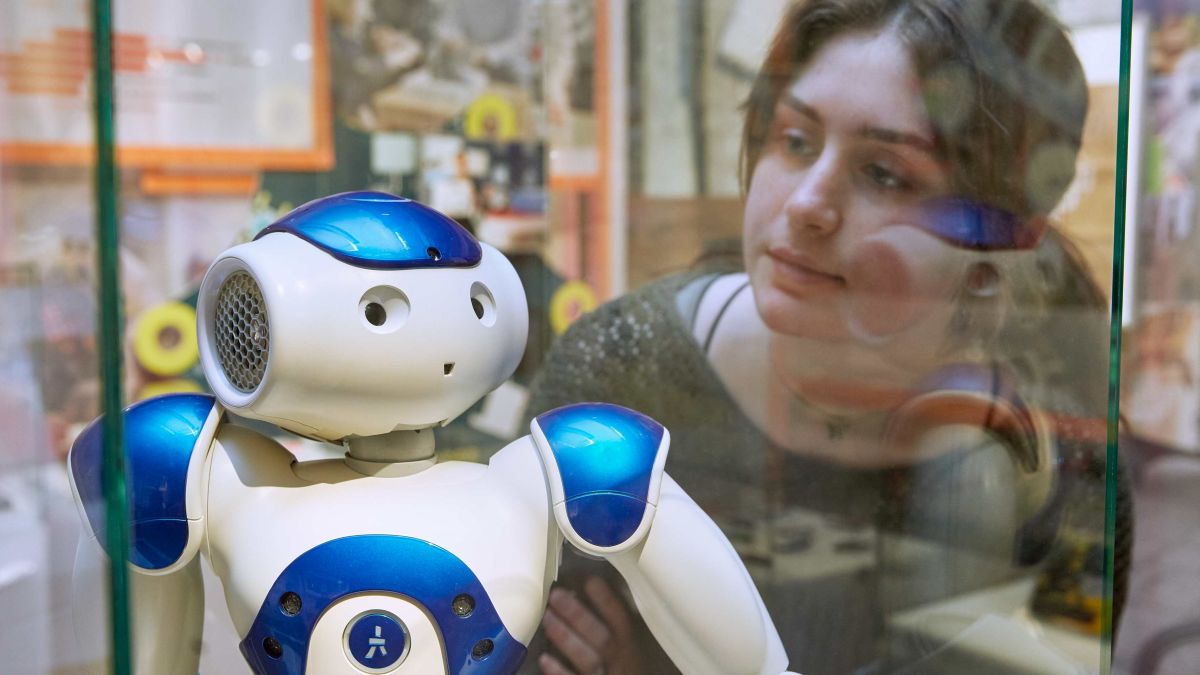
The first computer was hardly an object of interest when civil engineer Konrad Zuse presented it to the public in Berlin in 1941. His invention, the “Z3”, measures the size of a closet and is considered the world's first computer. 80 years later, our entire life can be organized via mini-computer – the smartphone: Writing messages, taking photos and videos, making phone calls, falling in love, watching movies, managing appointments, learning vocabulary, counting steps.
The digital revolution has started a radical, irreversible change affecting all areas of life – both in a positive and negative way. Besides fascinating new possibilities, users are threatened by the danger of losing control over their own data, becoming “transparent” people. The current exhibition #GermanyDigital looks at digitization in Germany as a historical process with international references.
In the three areas, business and work, everyday life and private life, and politics and society, visitors experience the positive and negative sides of the digitization process.
A 1.50 meter tall “Super Mario” creates awareness of how gaming – along with erotic and dating portals – has changed our free time. A cell phone, the “Siemens S 55”, shows that digital communication is an inevitable part of politics nowadays. Angela Merkel used it until 2007 during her work as the German Chancellor.
Visitors receive their personal chip card at the entrance of the exhibition. It opens up portals to the digital world: With it, they can program a robot, try out how to pay with cryptocurrency, create fake news themselves or try out retro gaming like “Pac Man”.
For the first time, we are inviting visitors to the “OpenSpace” in the middle of the exhibition to discuss, try out and get involved. Our topics range from eSports, fake news and hate speech to citizen participation on the Internet and Digital Detox.
More information: www.hdg.de/zeitgeschichtliches-forum/veranstaltungen.
Insights
